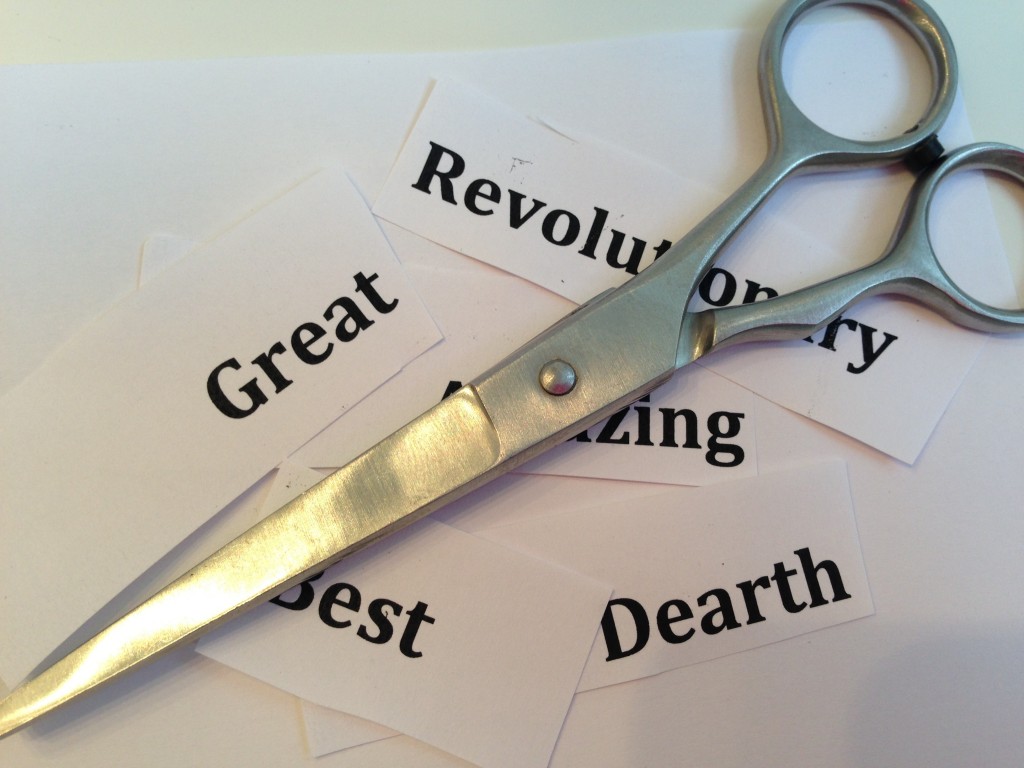Words To Cut From Press Releases
Words To Cut From Press Releases
If you are writing a press release (or other documents), cut out words like:- best, revolutionary, dearth, amazing and great! They simply don’t cut it.
I saw the article below in PR Daily and want to share it as it is spot on.
“When a company unveils a service or product, the top brass and employees are often excited—they’ve put a lot of work into planning and executing the launch.
Naturally, they want the public to be equally as excited, but forcing excitement with words alone won’t do the trick. The product has to live up to the hype.
Following are some of those excitable words that will elicit one guaranteed reaction from readers—an eye-roll.
Leave these words out of your next press release:
1. “Best”
Unless you won an award that identifies your product as the undisputed No. 1 item in the industry, don’t tell people it is. You may believe your product is the best on the market, but without cold, hard facts, this type of language is pure fluff at best, misleading at worst.
2. “Revolutionary”
A truly revolutionary product or discovery will forever change the way we think about something. It’s more than adding to an established concept; it’s taking an established concept, turning it upside down, rearranging the parts, and creating something entirely different from anything we’ve ever seen before.
Is your product really that different? Is it something that would have been unfathomable yesterday? If your answer is no, the product is not revolutionary.
3. “Dearth”
This is a surprisingly common word in press releases from other countries. The problem is that it’s an uncommon word in everyday speech in the United States. Always keep it simple. Even monosyllabic words can be confusing.
4. “Amazing”
Prepare to be amazed—or maybe not. Something that’s “amazing” causes great surprise or wonder. Today we describe a sip of water as amazing. It’s overused; your readers will skip over it.
5. “Great”
This word adds nothing to your prose. It’s one of those loose terms that represent an opinion rather than concrete facts. Rather than say your product is “great,” explain the actual benefits. How will this make my life better?
Remember: Less is more
Press release writing is a skill learned over time, but it needn’t be difficult. Use natural language, and get to the point as quickly as possible. Don’t drown your message with superfluous words. When in doubt, leave it out.
What other words should we ax from press releases? Let us know.
Original article by Rebecca Benison PR.com, can be found here.


